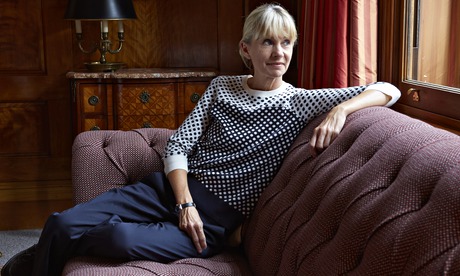The bestselling author explains how, through creativity and connecting with readers, novelists can still thrive in a digital age

Kate Mosse pictured in the Covent Garden Hotel, London. Photograph: Andy Hall for the Observer
Ever since the millennium, the e-revolution, plus the credit crunch, has sponsored all kinds of apocalyptic predictions about books, with regular bad news from the digital frontline. In America, even bestselling authors such as Malcolm Gladwell have taken to YouTube to denounce Big Brother, aka Amazon. In Britain, book-selling is said to be on the rocks, libraries doomed, the ebook all-conquering, with the Visigoths of online selling storming through Waterstone's.
Earnings are down and contracts scarce, putting careers in crisis and livelihoods at risk. In 2013 the median income of the professional writer was about £11,000, well below the £16,850 which the Joseph Rowntree Foundation considers a minimum standard of living.
And that's before you even begin to address the creative questions. Last May, Booker-nominated novelist Will Self added his thunderous tones to a Stygian chorus mourning the fate of literary fiction. "How do you think it feels," he boomed, "to have dedicated your entire adult life to an art form, only to see the bloody thing dying before your eyes?"
More
Earnings are down and contracts scarce, putting careers in crisis and livelihoods at risk. In 2013 the median income of the professional writer was about £11,000, well below the £16,850 which the Joseph Rowntree Foundation considers a minimum standard of living.
And that's before you even begin to address the creative questions. Last May, Booker-nominated novelist Will Self added his thunderous tones to a Stygian chorus mourning the fate of literary fiction. "How do you think it feels," he boomed, "to have dedicated your entire adult life to an art form, only to see the bloody thing dying before your eyes?"
More
No comments:
Post a Comment